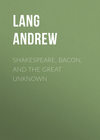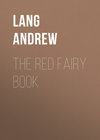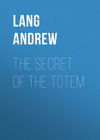Kitabı oku: «Waverley; Or, 'Tis Sixty Years Since», sayfa 12
CHAPTER XI
THE BANQUET
The entertainment was ample and handsome, according to the Scotch ideas of the period, and the guests did great honour to it. The Baron eat like a famished soldier, the Laird of Balmawhapple like a sportsman, Bullsegg of Killancureit like a farmer, Waverley himself like a traveller, and Bailie Macwheeble like all four together; though, either out of more respect, or in order to preserve that proper declination of person which showed a sense that he was in the presence of his patron, he sat upon the edge of his chair, placed at three feet distance from the table, and achieved a communication with his plate by projecting his person towards it in a line which obliqued from the bottom of his spine, so that the person who sat opposite to him could only see the foretop of his riding periwig.
This stooping position might have been inconvenient to another person; but long habit made it, whether seated or walking, perfectly easy to the worthy Bailie. In the latter posture it occasioned, no doubt, an unseemly projection of the person towards those who happened to walk behind; but those being at all times his inferiors (for Mr. Macwheeble was very scrupulous in giving place to all others), he cared very little what inference of contempt or slight regard they might derive from the circumstance. Hence, when he waddled across the court to and from his old grey pony, he somewhat resembled a turnspit walking upon its hind legs.
The nonjuring clergyman was a pensive and interesting old man, with much of the air of a sufferer for conscience’ sake. He was one of those
Who, undeprived, their benefice forsook.
For this whim, when the Baron was out of hearing, the Bailie used sometimes gently to rally Mr. Rubrick, upbraiding him with the nicety of his scruples. Indeed, it must be owned, that he himself, though at heart a keen partisan of the exiled family, had kept pretty fair with all the different turns of state in his time; so that Davie Gellatley once described him as a particularly good man, who had a very quiet and peaceful conscience, THAT NEVER DID HIM ANY HARM.
When the dinner was removed, the Baron announced the health of the King, politely leaving to the consciences of his guests to drink to the sovereign de facto or de jure, as their politics inclined. The conversation now became general; and, shortly afterwards, Miss Bradwardine, who had done the honours with natural grace and simplicity, retired, and was soon followed by the clergyman. Among the rest of the party, the wine, which fully justified the encomiums of the landlord, flowed freely round, although Waverley, with some difficulty, obtained the privilege of sometimes neglecting the glass. At length, as the evening grew more late, the Baron made a private signal to Mr. Saunders Saunderson, or, as he facetiously denominated him, Alexander ab Alexandro, who left the room with a nod, and soon after returned, his grave countenance mantling with a solemn and mysterious smile, and placed before his master a small oaken casket, mounted with brass ornaments of curious form. The Baron, drawing out a private key, unlocked the casket, raised the lid, and produced a golden goblet of a singular and antique appearance, moulded into the shape of a rampant bear, which the owner regarded with a look of mingled reverence, pride, and delight, that irresistibly reminded Waverley of Ben Jonson’s Tom Otter, with his Bull, Horse, and Dog, as that wag wittily denominated his chief carousing cups. But Mr. Bradwardine, turning towards him with complacency, requested him to observe this curious relic of the olden time.
‘It represents,’ he said, ‘the chosen crest of our family, a bear, as ye observe, and RAMPANT; because a good herald will depict every animal in its noblest posture, as a horse SALIENT, a greyhound CURRANT, and, as may be inferred, a ravenous animal in actu ferociori, or in a voracious, lacerating, and devouring posture. Now, sir, we hold this most honourable achievement by the wappen-brief, or concession of arms, of Frederick Red-beard, Emperor of Germany, to my predecessor, Godmund Bradwardine, it being the crest of a gigantic Dane, whom he slew in the lists in the Holy Land, on a quarrel touching the chastity of the emperor’s spouse or daughter, tradition saith not precisely which, and thus, as Virgilius hath it —
Mutemus clypeos,
Danaumque insignia nobis
Aptemus.
Then for the cup, Captain Waverley, it was wrought by the command of Saint Duthac, Abbot of Aberbrothock, for behoof of another baron of the house of Bradwardine, who had valiantly defended the patrimony of that monastery against certain encroaching nobles. It is properly termed the Blessed Bear of Bradwardine (though old Doctor Doubleit used jocosely to call it Ursa Major), and was supposed, in old and Catholic times, to be invested with certain properties of a mystical and supernatural quality. And though I give not in to such anilia, it is certain it has always been esteemed a solemn standard cup and heirloom of our house; nor is it ever used but upon seasons of high festival, and such I hold to be the arrival of the heir of Sir Everard under my roof; and I devote this draught to the health and prosperity of the ancient and highly-to-be-honoured house of Waverley.’
During this long harangue, he carefully decanted a cob-webbed bottle of claret into the goblet, which held nearly an English pint; and, at the conclusion, delivering the bottle to the butler, to be held carefully in the same angle with the horizon, he devoutly quaffed off the contents of the Blessed Bear of Bradwardine.
Edward, with horror and alarm, beheld the animal making his rounds, and thought with great anxiety upon the appropriate motto, ‘Beware the Bear’; but, at the same time, plainly foresaw that, as none of the guests scrupled to do him this extraordinary honour, a refusal on his part to pledge their courtesy would be extremely ill received. Resolving, therefore, to submit to this last piece of tyranny, and then to quit the table, if possible, and confiding in the strength of his constitution, he did justice to the company in the contents of the Blessed Bear, and felt less inconvenience from the draught than he could possibly have expected. The others, whose time had been more actively employed, began to show symptoms of innovation – ‘the good wine did its good office.’ [Footnote: Southey’s Madoc.] The frost of etiquette and pride of birth began to give way before the genial blessings of this benign constellation, and the formal appellatives with which the three dignitaries had hitherto addressed each other were now familiarly abbreviated into Tully, Bally, and Killie. When a few rounds had passed, the two latter, after whispering together, craved permission (a joyful hearing for Edward) to ask the grace-cup. This, after some delay, was at length produced, and Waverley concluded the orgies of Bacchus were terminated for the evening. He was never more mistaken in his life.
As the guests had left their horses at the small inn, or change-house, as it was called, of the village, the Baron could not, in politeness, avoid walking with them up the avenue, and Waverley from the same motive, and to enjoy after this feverish revel the cool summer evening, attended the party. But when they arrived at Luckie Macleary’s the Lairds of Balmawhapple and Killancureit declared their determination to acknowledge their sense of the hospitality of Tully-Veolan by partaking, with their entertainer and his guest Captain Waverley, what they technically called deoch an doruis, a stirrup-cup, [Footnote 2: See Note 10] to the honour of the Baron’s roof-tree.
It must be noticed that the Bailie, knowing by experience that the day’s jovialty, which had been hitherto sustained at the expense of his patron, might terminate partly at his own, had mounted his spavined grey pony, and, between gaiety of heart and alarm for being hooked into a reckoning, spurred him into a hobbling canter (a trot was out of the question), and had already cleared the village. The others entered the change-house, leading Edward in unresisting submission; for his landlord whispered him, that to demur to such an overture would be construed into a high misdemeanour against the leges conviviales, or regulations of genial compotation. Widow Macleary seemed to have expected this visit, as well she might, for it was the usual consummation of merry bouts, not only at Tully-Veolan, but at most other gentlemen’s houses in Scotland, Sixty Years Since. The guests thereby at once acquitted themselves of their burden of gratitude for their entertainer’s kindness, encouraged the trade of his change-house, did honour to the place which afforded harbour to their horses, and indemnified themselves for the previous restraints imposed by private hospitality, by spending what Falstaff calls the sweet of the night in the genial license of a tavern.
Accordingly, in full expectation of these distinguished guests, Luckie Macleary had swept her house for the first time this fortnight, tempered her turf-fire to such a heat as the season required in her damp hovel even at Midsummer, set forth her deal table newly washed, propped its lame foot with a fragment of turf, arranged four or five stools of huge and clumsy form upon the sites which best suited the inequalities of her clay floor; and having, moreover, put on her clean toy, rokelay, and scarlet plaid, gravely awaited the arrival of the company, in full hope of custom and profit. When they were seated under the sooty rafters of Luckie Macleary’s only apartment, thickly tapestried with cobwebs, their hostess, who had already taken her cue from the Laird of Balmawhapple, appeared with a huge pewter measuring-pot, containing at least three English quarts, familiarly denominated a Tappit Hen, and which, in the language of the hostess, reamed (i.e., mantled) with excellent claret just drawn from the cask.
It was soon plain that what crumbs of reason the Bear had not devoured were to be picked up by the Hen; but the confusion which appeared to prevail favoured Edward’s resolution to evade the gaily circling glass. The others began to talk thick and at once, each performing his own part in the conversation without the least respect to his neighbour. The Baron of Bradwardine sung French chansons-a-boire, and spouted pieces of Latin; Killancureit talked, in a steady unalterable dull key, of top-dressing and bottom-dressing, [Footnote: This has been censured as an anachronism; and it must be confessed that agriculture of this kind was unknown to the Scotch Sixty Years Since.] and year-olds, and gimmers, and dinmonts, and stots, and runts, and kyloes, and a proposed turnpike-act; while Balmawhapple, in notes exalted above both, extolled his horse, his hawks, and a greyhound called Whistler. In the middle of this din, the Baron repeatedly implored silence; and when at length the instinct of polite discipline so far prevailed that for a moment he obtained it, he hastened to beseech their attention ‘unto a military ariette, which was a particular favourite of the Marechal Duc de Berwick’; then, imitating, as well as he could, the manner and tone of a French musquetaire, he immediately commenced, —
Mon coeur volage, dit elle,
N’est pas pour vous, garcon;
Est pour un homme de guerre,
Qui a barbe au menton.
Lon, Lon, Laridon.
Qui port chapeau a plume,
Soulier a rouge talon,
Qui joue de la flute,
Aussi du violon.
Lon, Lon, Laridon.
Balmawhapple could hold no longer, but broke in with what he called a d – d good song, composed by Gibby Gaethroughwi’t, the piper of Cupar; and, without wasting more time, struck up, —
It’s up Glenbarchan’s braes I gaed,
And o’er the bent of Killiebraid,
And mony a weary cast I made,
To cuittle the moor-fowl’s tail.
[Footnote: Suum cuique. This snatch of a ballad was composed by Andrew MacDonald, the ingenious and unfortunate author of Vimonda.]
The Baron, whose voice was drowned in the louder and more obstreperous strains of Balmawhapple, now dropped the competition, but continued to hum ‘Lon, Lon, Laridon,’ and to regard the successful candidate for the attention of the company with an eye of disdain, while Balmawhapple proceeded, —
If up a bonny black-cock should spring,
To whistle him down wi’ a slug in his wing,
And strap him on to my lunzie string,
Right seldom would I fail.
After an ineffectual attempt to recover the second verse, he sung the first over again; and, in prosecution of his triumph, declared there was ‘more sense in that than in all the derry-dongs of France, and Fifeshire to the boot of it.’ The Baron only answered with a long pinch of snuff and a glance of infinite contempt. But those noble allies, the Bear and the Hen, had emancipated the young laird from the habitual reverence in which he held Bradwardine at other times. He pronounced the claret shilpit, and demanded brandy with great vociferation. It was brought; and now the Demon of Politics envied even the harmony arising from this Dutch concert, merely because there was not a wrathful note in the strange compound of sounds which it produced. Inspired by her, the Laird of Balmawhapple, now superior to the nods and winks with which the Baron of Bradwardine, in delicacy to Edward, had hitherto checked his entering upon political discussion, demanded a bumper, with the lungs of a Stentor, ‘to the little gentleman in black velvet who did such service in 1702, and may the white horse break his neck over a mound of his making!’
Edward was not at that moment clear-headed enough to remember that King William’s fall, which occasioned his death, was said to be owing to his horse stumbling at a mole-hill; yet felt inclined to take umbrage at a toast which seemed, from the glance of Balmawhapple’s eye, to have a peculiar and uncivil reference to the Government which he served. But, ere he could interfere, the Baron of Bradwardine had taken up the quarrel. ‘Sir,’ he said, ‘whatever my sentiments tanquam privatus may be in such matters, I shall not tamely endure your saying anything that may impinge upon the honourable feelings of a gentleman under my roof. Sir, if you have no respect for the laws of urbanity, do ye not respect the military oath, the sacramentum militare, by which every officer is bound to the standards under which he is enrolled? Look at Titus Livius, what he says of those Roman soldiers who were so unhappy as exuere sacramentum, to renounce their legionary oath; but you are ignorant, sir, alike of ancient history and modern courtesy.’
‘Not so ignorant as ye would pronounce me,’ roared Balmawhapple. ‘I ken weel that you mean the Solemn League and Covenant; but if a’ the Whigs in hell had taken the – ’
Here the Baron and Waverley both spoke at once, the former calling out, ‘Be silent, sir! ye not only show your ignorance, but disgrace your native country before a stranger and an Englishman’; and Waverley, at the same moment, entreating Mr. Bradwardine to permit him to reply to an affront which seemed levelled at him personally. But the Baron was exalted by wine, wrath, and scorn above all sublunary considerations.
‘I crave you to be hushed, Captain Waverley; you are elsewhere, peradventure, sui juris, – foris-familiated, that is, and entitled, it may be, to think and resent for yourself; but in my domain, in this poor Barony of Bradwardine, and under this roof, which is quasi mine, being held by tacit relocation by a tenant at will, I am in loco parentis to you, and bound to see you scathless. And for you, Mr. Falconer of Balmawhapple, I warn ye, let me see no more aberrations from the paths of good manners.’
‘And I tell you, Mr. Cosmo Comyne Bradwardine of Bradwardine and Tully-Veolan,’ retorted the sportsman in huge disdain, ‘that I’ll make a moor-cock of the man that refuses my toast, whether it be a crop-eared English Whig wi’ a black ribband at his lug, or ane wha deserts his ain friends to claw favour wi’ the rats of Hanover.’
In an instant both rapiers were brandished, and some desperate passes exchanged. Balmawhapple was young, stout, and active; but the Baron, infinitely more master of his weapon, would, like Sir Toby Belch, have tickled his opponent other gates than he did had he not been under the influence of Ursa Major.
Edward rushed forward to interfere between the combatants, but the prostrate bulk of the Laird of Killancureit, over which he stumbled, intercepted his passage. How Killancureit happened to be in this recumbent posture at so interesting a moment was never accurately known. Some thought he was about to insconce himself under the table; he himself alleged that he stumbled in the act of lifting a joint-stool, to prevent mischief, by knocking down Balmawhapple. Be that as it may, if readier aid than either his or Waverley’s had not interposed, there would certainly have been bloodshed. But the well-known clash of swords, which was no stranger to her dwelling, aroused Luckie Macleary as she sat quietly beyond the hallan, or earthen partition of the cottage, with eyes employed on Boston’s ‘Crook the Lot,’ while her ideas were engaged in summing up the reckoning. She boldly rushed in, with the shrill expostulation, ‘Wad their honours slay ane another there, and bring discredit on an honest widow-woman’s house, when there was a’ the lee-land in the country to fight upon?’ a remonstrance which she seconded by flinging her plaid with great dexterity over the weapons of the combatants. The servants by this time rushed in, and being, by great chance, tolerably sober, separated the incensed opponents, with the assistance of Edward and Killancureit. The latter led off Balmawhapple, cursing, swearing, and vowing revenge against every Whig, Presbyterian, and fanatic in England and Scotland, from John-o’-Groat’s to the Land’s End, and with difficulty got him to horse. Our hero, with the assistance of Saunders Saunderson, escorted the Baron of Bradwardine to his own dwelling, but could not prevail upon him to retire to bed until he had made a long and learned apology for the events of the evening, of which, however, there was not a word intelligible, except something about the Centaurs and the Lapithae.
CHAPTER XII
REPENTANCE AND A RECONCILIATION
Waverley was unaccustomed to the use of wine, excepting with great temperance. He slept therefore soundly till late in the succeeding morning, and then awakened to a painful recollection of the scene of the preceding evening. He had received a personal affront – he, a gentleman, a soldier, and a Waverley. True, the person who offered it was not, at the time it was given, possessed of the moderate share of sense which nature had allotted him; true also, in resenting this insult, he would break the laws of Heaven as well as of his country; true, in doing so, he might take the life of a young man who perhaps respectably discharged the social duties, and render his family miserable, or he might lose his own – no pleasant alternative even to the bravest, when it is debated coolly and in private.
All this pressed on his mind; yet the original statement recurred with the same irresistible force. He had received a personal insult; he was of the house of Waverley; and he bore a commission. There was no alternative; and he descended to the breakfast parlour with the intention of taking leave of the family, and writing to one of his brother officers to meet him at the inn midway between Tully-Veolan and the town where they were quartered, in order that he might convey such a message to the Laird of Balmawhapple as the circumstances seemed to demand. He found Miss Bradwardine presiding over the tea and coffee, the table loaded with warm bread, both of flour, oatmeal, and barleymeal, in the shape of loaves, cakes, biscuits, and other varieties, together with eggs, reindeer ham, mutton and beef ditto, smoked salmon, marmalade, and all the other delicacies which induced even Johnson himself to extol the luxury of a Scotch breakfast above that of all other countries. A mess of oatmeal porridge, flanked by a silver jug, which held an equal mixture of cream and butter-milk, was placed for the Baron’s share of this repast; but Rose observed, he had walked out early in the morning, after giving orders that his guest should not be disturbed.
Waverley sat down almost in silence, and with an air of absence and abstraction which could not give Miss Bradwardine a favourable opinion of his talents for conversation. He answered at random one or two observations which she ventured to make upon ordinary topics; so that, feeling herself almost repulsed in her efforts at entertaining him, and secretly wondering that a scarlet coat should cover no better breeding, she left him to his mental amusement of cursing Doctor Doubleit’s favourite constellation of Ursa Major as the cause of all the mischief which had already happened and was likely to ensue. At once he started, and his colour heightened, as, looking toward the window, he beheld the Baron and young Balmawhapple pass arm in arm, apparently in deep conversation; and he hastily asked, ‘Did Mr. Falconer sleep here last night?’ Rose, not much pleased with the abruptness of the first question which the young stranger had addressed to her, answered drily in the negative, and the conversation again sunk into silence.
At this moment Mr. Saunderson appeared, with a message from his master, requesting to speak with Captain Waverley in another apartment. With a heart which beat a little quicker, not indeed from fear, but from uncertainty and anxiety, Edward obeyed the summons. He found the two gentlemen standing together, an air of complacent dignity on the brow of the Baron, while something like sullenness or shame, or both, blanked the bold visage of Balmawhapple. The former slipped his arm through that of the latter, and thus seeming to walk with him, while in reality he led him, advanced to meet Waverley, and, stopping in the midst of the apartment, made in great state the following oration: ‘Captain Waverley – my young and esteemed friend, Mr. Falconer of Balmawhapple, has craved of my age and experience, as of one not wholly unskilled in the dependencies and punctilios of the duello or monomachia, to be his interlocutor in expressing to you the regret with which he calls to remembrance certain passages of our symposion last night, which could not but be highly displeasing to you, as serving for the time under this present existing government. He craves you, sir, to drown in oblivion the memory of such solecisms against the laws of politeness, as being what his better reason disavows, and to receive the hand which he offers you in amity; and I must needs assure you that nothing less than a sense of being dans son tort, as a gallant French chevalier, Mons. Le Bretailleur, once said to me on such an occasion, and an opinion also of your peculiar merit, could have extorted such concessions; for he and all his family are, and have been, time out of mind, Mavortia pectora, as Buchanan saith, a bold and warlike sept, or people.’
Edward immediately, and with natural politeness, accepted the hand which Balmawhapple, or rather the Baron in his character of mediator, extended towards him. ‘It was impossible,’ he said, ‘for him to remember what a gentleman expressed his wish he had not uttered; and he willingly imputed what had passed to the exuberant festivity of the day.’
‘That is very handsomely said,’ answered the Baron; ‘for undoubtedly, if a man be ebrius, or intoxicated, an incident which on solemn and festive occasions may and will take place in the life of a man of honour; and if the same gentleman, being fresh and sober, recants the contumelies which he hath spoken in his liquor, it must be held vinum locutum est; the words cease to be his own. Yet would I not find this exculpation relevant in the case of one who was ebriosus, or an habitual drunkard; because, if such a person choose to pass the greater part of his time in the predicament of intoxication, he hath no title to be exeemed from the obligations of the code of politeness, but should learn to deport himself peaceably and courteously when under influence of the vinous stimulus. And now let us proceed to breakfast, and think no more of this daft business.’
I must confess, whatever inference may be drawn from the circumstance, that Edward, after so satisfactory an explanation, did much greater honour to the delicacies of Miss Bradwardine’s breakfast-table than his commencement had promised. Balmawhapple, on the contrary, seemed embarrassed and dejected; and Waverley now, for the first time, observed that his arm was in a sling, which seemed to account for the awkward and embarrassed manner with which he had presented his hand. To a question from Miss Bradwardine, he muttered in answer something about his horse having fallen; and seeming desirous to escape both from the subject and the company, he arose as soon as breakfast was over, made his bow to the party, and, declining the Baron’s invitation to tarry till after dinner, mounted his horse and returned to his own home.
Waverley now announced his purpose of leaving Tully-Veolan early enough after dinner to gain the stage at which he meant to sleep; but the unaffected and deep mortification with which the good-natured and affectionate old gentleman heard the proposal quite deprived him of courage to persist in it. No sooner had he gained Waverley’s consent to lengthen his visit for a few days than he laboured to remove the grounds upon which he conceived he had meditated a more early retreat. ‘I would not have you opine, Captain Waverley, that I am by practice or precept an advocate of ebriety, though it may be that, in our festivity of last night, some of our friends, if not perchance altogether ebrii, or drunken, were, to say the least, ebrioli, by which the ancients designed those who were fuddled, or, as your English vernacular and metaphorical phrase goes, half-seas-over. Not that I would so insinuate respecting you, Captain Waverley, who, like a prudent youth, did rather abstain from potation; nor can it be truly said of myself, who, having assisted at the tables of many great generals and marechals at their solemn carousals, have the art to carry my wine discreetly, and did not, during the whole evening, as ye must have doubtless observed, exceed the bounds of a modest hilarity.’
There was no refusing assent to a proposition so decidedly laid down by him, who undoubtedly was the best judge; although, had Edward formed his opinion from his own recollections, he would have pronounced that the Baron was not only ebriolus, but verging to become ebrius; or, in plain English, was incomparably the most drunk of the party, except perhaps his antagonist the Laird of Balmawhapple. However, having received the expected, or rather the required, compliment on his sobriety, the Baron proceeded – ‘No, sir, though I am myself of a strong temperament, I abhor ebriety, and detest those who swallow wine gulce causa, for the oblectation of the gullet; albeit I might deprecate the law of Pittacus of Mitylene, who punished doubly a crime committed under the influence of ‘Liber Pater’; nor would I utterly accede to the objurgation of the younger Plinius, in the fourteenth book of his ‘Historia Naturalis.’ No, sir, I distinguish, I discriminate, and approve of wine so far only as it maketh glad the face, or, in the language of Flaccus, recepto amico.’
Thus terminated the apology which the Baron of Bradwardine thought it necessary to make for the superabundance of his hospitality; and it may be easily believed that he was neither interrupted by dissent nor any expression of incredulity.
He then invited his guest to a morning ride, and ordered that Davie Gellatley should meet them at the dern path with Ban and Buscar. ‘For, until the shooting season commence, I would willingly show you some sport, and we may, God willing, meet with a roe. The roe, Captain Waverley, may be hunted at all times alike; for never being in what is called PRIDE OF GREASE, he is also never out of season, though it be a truth that his venison is not equal to that of either the red or fallow deer. [Footnote: The learned in cookery dissent from the Baron of Bradwardine, and hold the roe venison dry and indifferent food, unless when dressed in soup and Scotch collops.] But he will serve to show how my dogs run; and therefore they shall attend us with David Gellatley.’
Waverley expressed his surprise that his friend Davie was capable of such trust; but the Baron gave him to understand that this poor simpleton was neither fatuous, nec naturaliter idiota, as is expressed in the brieves of furiosity, but simply a crack-brained knave, who could execute very well any commission which jumped with his own humour, and made his folly a plea for avoiding every other. ‘He has made an interest with us,’ continued the Baron, ‘by saving Rose from a great danger with his own proper peril; and the roguish loon must therefore eat of our bread and drink of our cup, and do what he can, or what he will, which, if the suspicions of Saunderson and the Bailie are well founded, may perchance in his case be commensurate terms.’
Miss Bradwardine then gave Waverley to understand that this poor simpleton was dotingly fond of music, deeply affected by that which was melancholy, and transported into extravagant gaiety by light and lively airs. He had in this respect a prodigious memory, stored with miscellaneous snatches and fragments of all tunes and songs, which he sometimes applied, with considerable address, as the vehicles of remonstrance, explanation, or satire. Davie was much attached to the few who showed him kindness; and both aware of any slight or ill usage which he happened to receive, and sufficiently apt, where he saw opportunity, to revenge it. The common people, who often judge hardly of each other as well as of their betters, although they had expressed great compassion for the poor innocent while suffered to wander in rags about the village, no sooner beheld him decently clothed, provided for, and even a sort of favourite, than they called up all the instances of sharpness and ingenuity, in action and repartee, which his annals afforded, and charitably bottomed thereupon a hypothesis that David Gellatley was no farther fool than was necessary to avoid hard labour. This opinion was not better founded than that of the Negroes, who, from the acute and mischievous pranks of the monkeys, suppose that they have the gift of speech, and only suppress their powers of elocution to escape being set to work. But the hypothesis was entirely imaginary; David Gellatley was in good earnest the half-crazed simpleton which he appeared, and was incapable of any constant and steady exertion. He had just so much solidity as kept on the windy side of insanity, so much wild wit as saved him from the imputation of idiocy, some dexterity in field-sports (in which we have known as great fools excel), great kindness and humanity in the treatment of animals entrusted to him, warm affections, a prodigious memory, and an ear for music.



![XXXII Ballades in Blue China [1885]](https://cdn.litres.ru/pub/c/cover_100/25230660.jpg)






